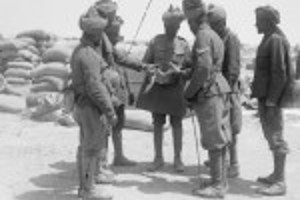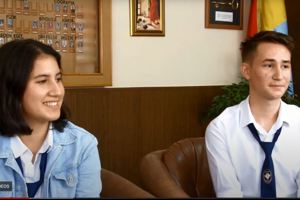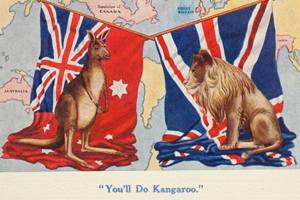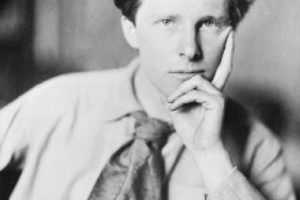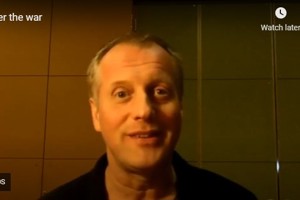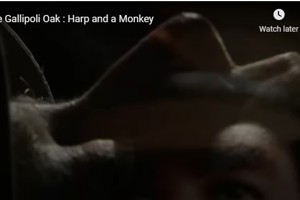The World at War
‘At Gallipoli the Great War became a World War’. Soldiers came from every continent to fight there, as you can see from this map (click on it for a larger version).
Today, every country looks back and sees a different story: here are some different attitudes to Gallipoli.
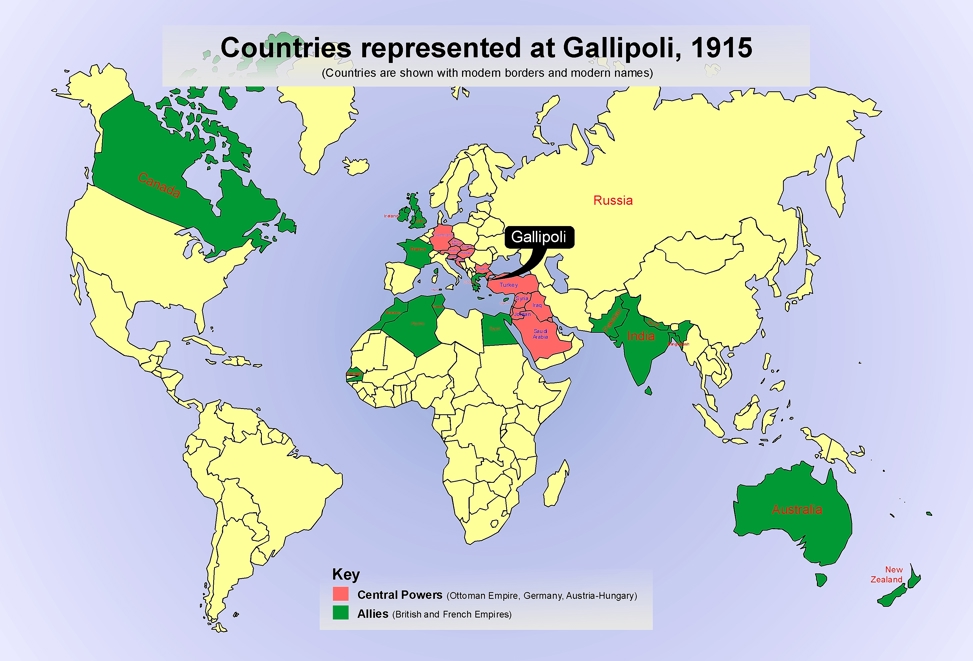
Here, historian Sir Hew Strachan describes how the Gallipoli Campaign opened out the European war into a world war. The armies were multi-national forces drawn from all over the world. Britain, France and Ottoman Turkey brought soldiers from many parts of their empires, and Germany hoped that the Gallipoli Campaign would draw French and British troops away from the Western Front.
-
In 1915 India was part of the British Empire. 1.4 million men were sent to the war as part of the Indian Army, commanded by British officers. Although only a small part of this Army actually went to Gallipoli, Indian soldiers played an important part. Indeed a unit of Gurkhas came closer than any other to capturing the crucially important heigh...
-
These videos show five Turkish people’s opinions about what Gallipoli means to them. We interviewed all of them during trips to Gallipoli during the centenary. Kaan Aksoy is a tour guide. As he explains, Gallipoli is seen as a founding moment for modern Turkey. He also comments on the idea of Turkish soldiers being seen as martyrs. Efe i...
-
For many Australians, Gallipoli is the most important part of their history. How did this happen? Why should they identify with a military disaster? Why do 10,000 Australians attend the Dawn Service in Gallipoli every year? In this interview, British historian Stephen Chambers talks about why Australians feel Gallipoli is so important. Her...
-
This section looks at some of the poets who wrote about Gallipoli, both during the war and more recently. Poetry written at the time Rupert Brooke Two days before the landings, one of the most famous First World War poets – Rupert Brooke – died from an infection, probably after an insect bite. He was with the Royal Naval Division at the island...
-
What did the soldiers do when they got back home? We tend to think of soldiers who came back from the war as victims. Historian Martin Purdy disagrees. The experiences they had been through made them want to improve the world, setting up the health service, building democratic rights and much more. Martin Purdy talks about how the returning so...
-
Perhaps more than any other art form, music can express deep feelings and emotions. In this section are a few of the widely different examples of music inspired by Gallipoli, or written at that time. Find out about our own music project with primary schools in London here. Folk songs Here are four examples of songs written about the experience...

